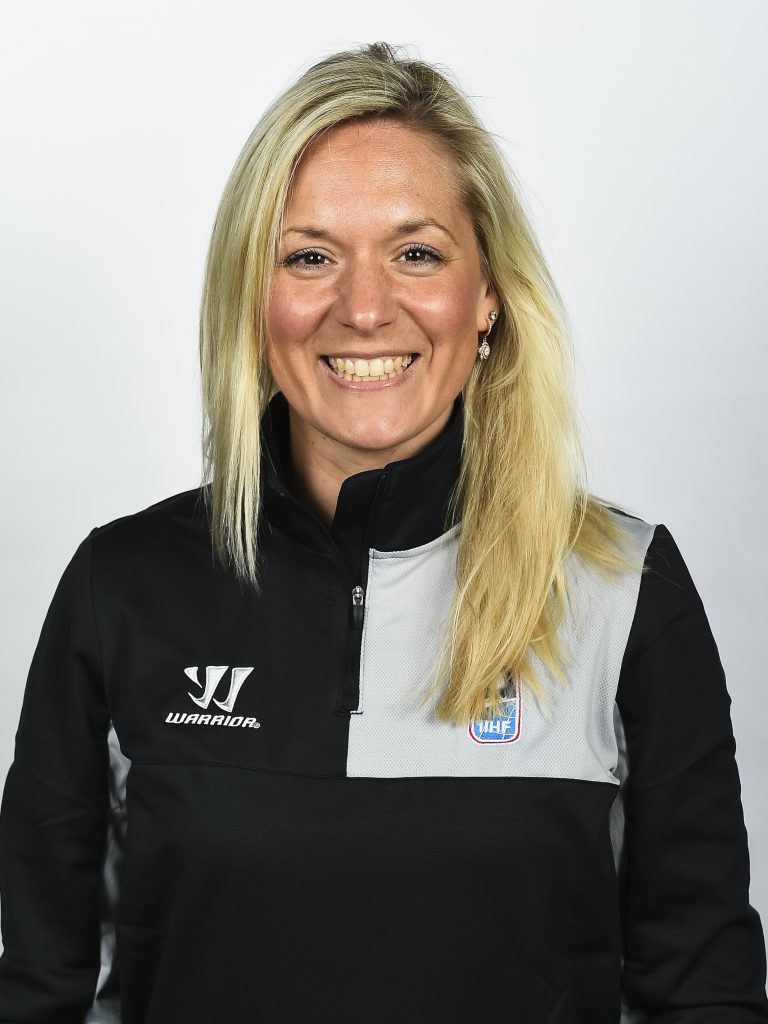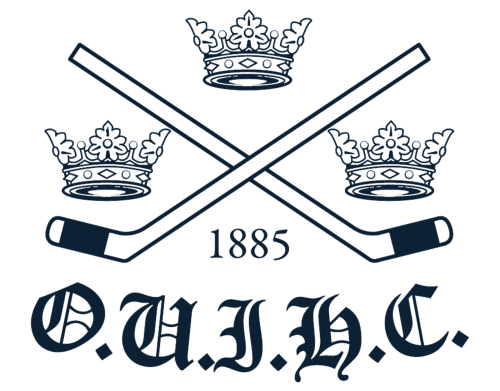With alumni that have established prominent careers in the fields of public service, philanthropy, finance, business, politics, and academia, the OUIHC has arguably the most distinguished alumni list of any hockey program in the world since its inception in 1885.
The alumni list below is in chronological order and attempts to showcase the breadth of OUIHC alumni from the formation of the men’s team in 1885 to the women’s team in 1981. Historic and well-known alumni are featured including those who have achieved remarkable success in their field and/or have significantly given back to OUIHC since graduating.
Please note that the list is not exhaustive and does not do diligence to the support that the wider alumni community has given the Club over many decades.
This is original research conducted by Dr Trent Taylor BA (Virginia), MSt DPhil (Oxon.). Where possible, photos have been included and a short bio provided. Sources include the unpublished OUIHC Archive and the Bodleian Library in Oxford.
His Majesty King Edward VII. The King was an alumnus of both Oxford and Cambridge having matriculated at Christ Church, Oxford in 1859 and transferred to Trinity College, Cambridge in 1861. His Majesty was an early pioneer of British ice hockey and played several prominent games while the Prince of Wales – prior to the establishment of the Oxford-Cambridge Ice Hockey Varsity Match – which attracted significant interest to the sport in Great Britain.
In the winter of 1895, Edward, Prince of Wales, organised and captained a team from Sandringham House, his personal household. On 15 February 1895, the Prince of Wales’s Sandringham team played a team from the House of Commons on the lake at Buckingham Palace and in doing so Prince Edward brought together a number of alumni from both Oxford and Cambridge. The Commons team included future British Prime Minister Arthur Balfour, Victor Cavendish – who would later become the eleventh Governor General of Canada – and Lord Stanley, the sixth Canadian Governor General and namesake of the famed Stanley Cup. In addition to Edward VII, there were three Oxford alumni and five Cambridge alumni between the two teams. Five days after the Prince’s victory over Lord Stanley and the commons, the 1895 Oxford-Cambridge Varsity Match was held at the lake at Blenheim Palace.
While the Prince’s time at Oxford preceded the official formation of OUIHC, as an Oxford and Cambridge alumnus, an early pioneer of the sport, and an advocate for the Varsity Match, he is the namesake of the Oxford-Cambridge Varsity Match Trophy.
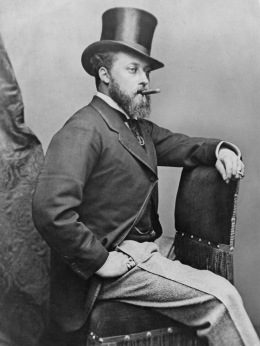
Sir Francis James Wylie, Balliol College 1888. Born in Bromley, Kent, Sir Wylie graduated from St Edward’s School and attended Glasgow University before he received a scholarship to Balliol College where he received a First in Classics in 1888. Though of slight build, he rowed in the Balliol eight whilst at Oxford, was elected to the Vincent’s Club and Leander, and competed on Oxford’s 1895 Varsity Match winning team (6-1 over Cambridge), which was played on a frozen lake at Blenheim Palace in Oxfordshire. Sir Francis was elected a fellow of Brasenose College in 1892 where he was a professor of English Literature. Thus, he competed as a professor (rather than a student) in the 1895 bandy match and was responsible for four of Oxford’s six goals. In 1903, Wylie became the first Warden of Rhodes House for the newly instituted Rhodes Scholarship, acting as the Chief Executive Officer of the Rhodes Trust and Secretary to the Trustees, a position he held until 1931. During the latter years of his tenure, he was knighted by His Majesty King George V (1929). The Oxford History Faculty’s Wylie Prize for the best Final Honours School essay on American history was named in his honour and continues to be awarded.
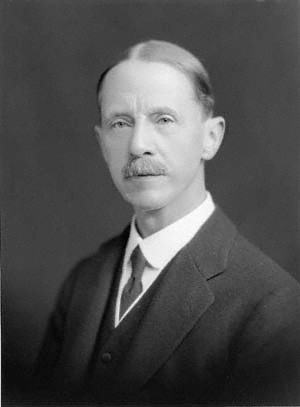
The Rt. Rev. Philip Mercer Rhinelander, DD, Christ Church College 1895. Born in Rhode Island, Rhinelander graduated from Harvard University in 1891 and later competed for Oxford alongside Sir Francis James Wylie in the first recorded ice hockey Varsity Match held in Britain (at Blenheim Palace) and was one of the three scoring players in this match. Of the men known to have participated in the 1895 match, Rhinelander was the only non-British player. After returning to the United States, Rhinelander attended Harvard University where he earned the degree of Doctor of Divinity. In 1911, he became the seventh Anglican Bishop of Pennsylvania (1911-1923) and played a key role in the creation of the Washington National Cathedral, where he served as a Trustee.
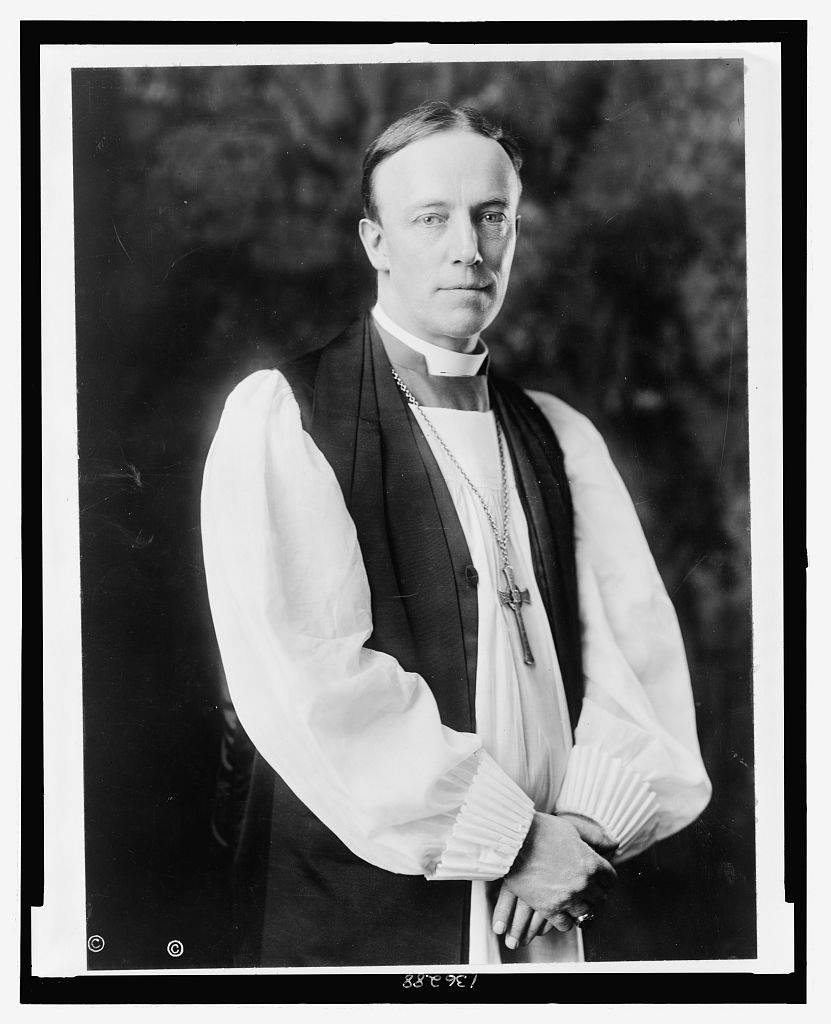
Sir Cecil William Noble Graham, Trinity College 1895. Sir Cecil was a member of the 1895 bandy team and scored one of Oxford’s six goals. Soon after finishing his degree Graham moved to India. He was a Member of the Imperial Legislative Council of India from 1909-1912 and was made a knight bachelor in 1911 at the Delhi Durbar. Sir Cecil was an accomplished athlete; in addition to playing ice hockey he rowed for Trinity College, captained the Calcutta Rowing Club, and was a member of the Calcutta Polo Club teams which won the Indian Polo Association Open Championship in 1908 and 1909. In 1920, Sir Cecil was a member of the International Olympic Committee for Horse Polo.
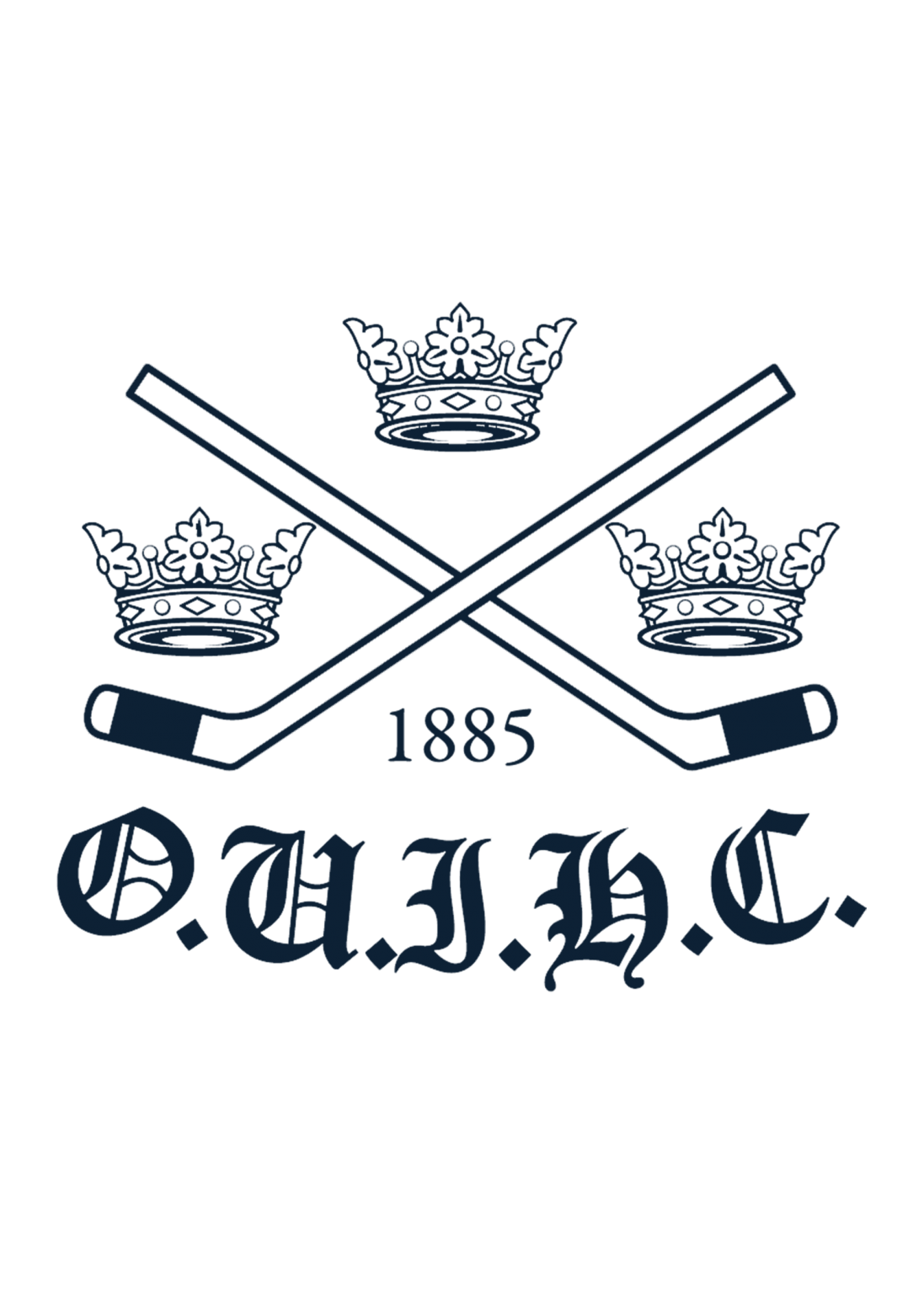
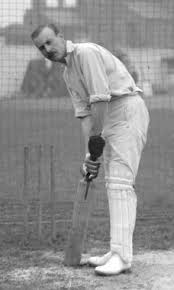
Bernard James Tindal Bosanquet, Oriel College 1900-1901. English cricketer and member of the English Cricket Team, appearing in seven Test matches. He is known as the inventor of the ‘googly’, a style of bowling designed to deceive the batsman. Having played cricket at Eton College, Bosanquet went on to play for Oxford whilst also playing for his county, Middlesex. He earned a cricket Full Blue in addition to Half Blues in hammer-throwing and billiards. In 1900, he laced up the skates for the OUIHC and beat Cambridge in the Varsity Match (7-6) at the Prince’s Skating Club in London.
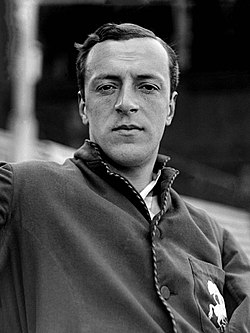
Dr Wilburt Cornell Davison, MD, Merton College, 1913 Rhodes Scholar from New York. While studying medicine at Oxford, Davison became a protégé of Sir William Osler, who profoundly shaped his thinking about many aspects of medical education. After completing a clinical clerkship at Johns Hopkins, Davison volunteered with the American Red Cross on a typhus commission in France and Serbia (1914-1915), and served as a Captain in the medical corps of the US Army’s Allied Expeditionary Force (1917-1919). After the war, Davison returned to Johns Hopkins University, rising rapidly to assistant dean, and left in 1927 to found the Duke University School of Medicine. “Dave”, as he was known to his friends and colleagues, was heavily involved in the planning and directing of the medical school, and was known to don overalls to help the labour crew as construction progressed. He assembled the school’s faculty and served as Dean and Pediatric Chairman for 34 years, during which time the school trained over 1,800 physicians and a veritable army of other healthcare workers. An author of over 200 scientific papers, he helped establish loan funds for rural medical students and was a pioneer in establishing hospital insurance in the United States.
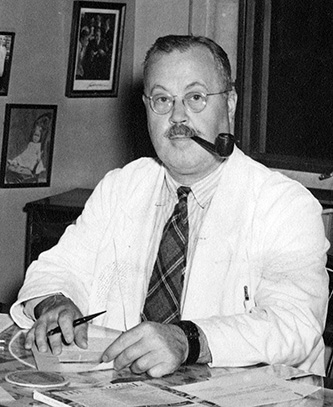
The Rev. Canon Kenneth Elder Taylor, OBE, ED, DD, Oriel College, awarded the Rhodes Scholarship in 1918, but deferred until 1920. Taylor, a goaltender, was instrumental in reviving ice hockey at Oxford University in the wake of the First World War. He captained the 1920 team and was responsible for the reconstitution of the team as the Oxford University Ice Hockey Club in 1921. Winning the Varsity Match against Cambridge in 1921 (27-0), 1922 (7-1), and 1923 (3-0), Taylor also won the inaugural 1923 Spengler Cup in Davos, Switzerland. Taylor later served in the Canadian Chaplain Service during the Second World War and was made an Officer of the Order of the British Empire in 1945 for his wartime service. In 1947, Taylor became the principal of the Anglican Theological College at the University of British Columbia. He was made a Commander of the Order of Orange-Nassau in 1949 by Queen Juliana of the Netherlands in recognition of his wartime services in the Netherlands.

Edward Pitblado, The Queen’s College, 1920 Rhodes Scholar from Manitoba. Pitblado was captain of the OUIHC for their Varsity Match win over Cambridge in the 1923 season (3-0), and led the team to victory in the inaugural 1923 Spengler Cup in Davos, Switzerland. As part of the 1923-1924 European tour, the OUIHC played several Olympic ice hockey teams, including the British Olympic hopefuls. Following the OUIHC’s victory over the British team, Pitblado was selected to play as a forward on the British Olympic ice hockey team. Pitblado and the British Olympic team won the bronze medal at the 1924 Winter Olympics in Chamonix, France. He was instrumental in the founding of Ducks Unlimited and was president of the Manitoba Law Society from 1965 to 1966.

The Rt. Hon. Lester Bowles Pearson, PC, OM, CC, OBE, St John’s College 1921-1923. A scholar, statesman, soldier, prime minister, Nobel laureate, and diplomat, Pearson attended Oxford on a Massey Foundation Scholarship following his service with the Royal Flying Corps during World War I. He joined Kenneth Taylor’s Oxford University ice hockey team and was a skilled defenceman. He had a distinguished political career following the completion of his studies at Oxford and was made an Officer of the Order of the British Empire in 1935 in recognition of his ‘advisory services to International and Inter-Imperial Conferences and Royal Commissions in the Dominion of Canada’. He served as Canadian Ambassador to the United States 1944-1946, was a Member of Parliament for Algoma, Ontario 1948-1968, and President of the United Nations General Assembly, 1952. In 1956 he used the world’s first, large-scale United Nations peacekeeping force to de-escalate the Suez Canal Crisis in Egypt, earning him the 1957 Nobel Peace Prize. He served as the 14th Prime Minister of Canada (1963-1968) and Chancellor of Carleton University 1969-1972. He was also a capable athlete, and played semi-professional baseball as part of the Guelph Maple Leafs. A scholarship has been established in his memory at St John’s College; the first recipient of the Lester B. Pearson Graduate Scholarship was, by chance, a member of the Oxford women’s ice hockey team. The Pearson Cup trophy is also awarded annually to the MVP of the current Men’s Blues team.
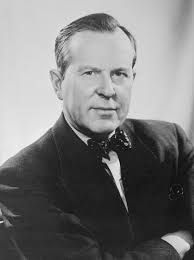
The Rt. Hon. Roland Michener, PC, CC, CMM, OOnt, CD, KStJ, QC, FRHSC(hon), Hertford College, 1919 Rhodes Scholar from Alberta. A skilled lawyer, politician, and diplomat, Michener competed for the OUIHC alongside his lifelong friend, Lester B. Pearson. After graduating, he founded the prominent Toronto law firm Lang Michener in 1924, and later served as a member of Provincial Parliament (MPP) for the Toronto riding of St David (1945-1948). He entered federal politics as a Progressive Conservative member of Parliament (MP) for Toronto St Paul’s (1953-1962), where he served as Speaker of the House of Commons of Canada (1957-1962). Prime Minister Lester B. Pearson appointed Michener high commissioner to India (1964) and ambassador to Nepal (1965-1967); finally, it was upon Pearson’s recommendation that Her Majesty Queen Elizabeth II appointed Michener Governor General of Canada (1967-1974). As Governor General, he inaugurated the Order of Canada and was a champion of sport and fitness, establishing the Roland Michener Trophy for the Juvenile “AAA” hockey championship in Ontario. His fondness for jogging also earned him the nickname “Canada’s Jogging Governor General”. Under Prime Minister Pierre Trudeau he signed the War Measures Act into law during the October Crisis, and was awarded the Royal Victorian Chain by Queen Elizabeth in 1973. He later served as Chancellor of Queen’s University (1974-1980) and as secretary general of the Rhodes Foundation.
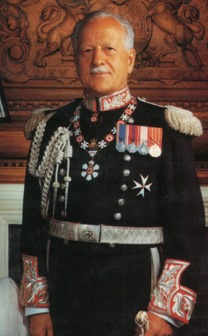
Clarence S. Campbell, MBE, QC, Lincoln College, 1926 Rhodes Scholar from Alberta. Campbell captained the OUIHC during the 1928-1929 season and won the Varsity Match against Cambridge in 1929 (1-0). After graduating from Oxford, he worked as a lawyer and was an NHL referee in the 1930s. Campbell enlisted in the Canadian Infantry Corps Armoured Division during the Second World War, and held the rank of lieutenant colonel and subsequently major. He was a skilled lawyer and prosecuted former Nazi officials for crimes against humanity in the immediate post-war years. In 1945, he was made a Member of the Order of the British Empire and was appointed King’s Counsel in 1948. He served as the third president of the NHL from 1946 to 1977, and was honorary chairman of the NHL from 1977 until his death in 1984. In 1967, the NHL trophy for the Western Conference playoff championship was named the Clarence S. Campbell Bowl in his honour. Campbell remained a strong supporter of the OUIHC and rallied the alumni to donate funds when the Club was struggling in the 1970s and 1980s.
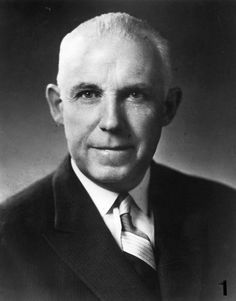
The Hon. Ronald Martland, CC, AOE, QC, Hertford College, 1928 Rhodes Scholar from Alberta. Martland studied law while at the University and became the first Canadian to receive Oxford University’s Vinerian Prize for the best performance in the bachelor of civil law examination in 1931. He captained the OUIHC in the 1930-1931 season, beat Cambridge in the 1931 Varsity Match (5-1), and defeated Berliner Schlittschuhclub (4-1) in the 1931 Spengler Cup final. Martland returned to Canada after finishing his degree, and was appointed an associate justice of the Supreme Court in 1958 by Prime Minister John Diefenbaker.
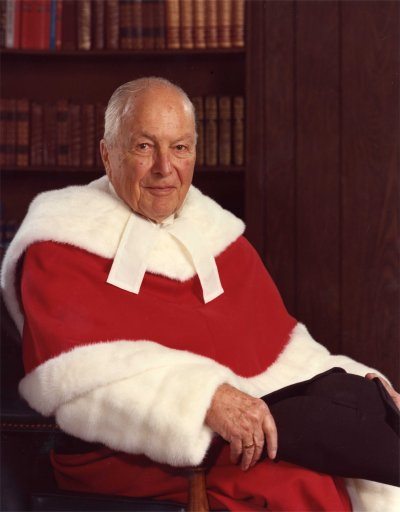
The Hon. George F. G. Stanley, CC, CD, KStJ, GCLJ, DPhil, FRSC, FRHistS, FRHSC, Keble College, 1929 Rhodes Scholar from Alberta. As a member of the OUIHC, Stanley defeated Cambridge in the 1929 (1-0) and 1931 (5-1) Varsity Match, and helped Oxford win the 1931 Spengler Cup. While in Oxford he wrote a classic work on Western Canadian history and the Riel rebellions, and later served as deputy director of the Canadian Army’s historical section during World War II. After the war, he was awarded a Guggenheim Fellowship, served as President of the Canadian Historical Society, and held professorships in history at Mount Allison University, the University of British Columbia (where he held the first Chair of Canadian History in the country), and at the Royal Military College of Canada. He designed the Maple Leaf Flag in 1964, which replaced the Canadian Red Ensign, and served as the 25th Lieutenant-Governor of New Brunswick (1981-1987).
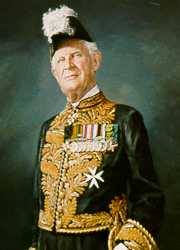
Commander Charles Herbert Little, Royal Canadian Navy, CD, FRCGS, Brasenose College, 1930 Rhodes Scholar from Ontario. Little, a goaltender, captained the OUIHC in the 1932-1933 season and was one of the most committed of the club’s leaders since Ken Taylor. He helped lead Oxford to three consecutive Varsity Match wins over Cambridge in 1931 (5-1), 1932 (7-0), and 1933 (1-0), won the Spengler Cup twice (in 1931 and 1932), and was awarded a Full Blue (first introduced for ice hockey in 1933). Before leaving Oxford, he donated a silver cup for an intercollegiate ice hockey competition in the hopes of strengthening the sport at the university and ensuring the longevity of the club. The first competition for the Little Cup was held in 1933, but with the closure of the Oxford ice rink in 1934, the competition ceased and the cup was returned to Little. Little returned to Canada after completing his degree and served as the director of the Naval Intelligence Service of Canada during the Second World War. He was an accomplished historian and was appointed to the Order of Isabella the Catholic by the Government of Spain for his research on the Spanish exploration of British Columbia in the eighteenth century. In March 2000, Little returned to Oxford with his teammate Hugh Whitney Morrison as guests of honour at the Men’s Blues Varsity Match, won by Oxford 4-2 and covered in the New York Times. He generously rededicated the Little Cup, which is now awarded annually.

Hugh Whitney Morrison, BA, MA, Merton College, 1930 Rhodes Scholar from Alberta. While earning his BA (Hons.) in Language and Literature at the University of Alberta in Edmonton, Hugh had a love of baseball and golf, and had been a star of his high school’s rugby team. In University he played inter-faculty hockey, quarterbacked an inter-faculty football team, and was the sports editor of the University’s newspaper. At Oxford, his 1931-1932 ice hockey team was comprised entirely of Rhodes Scholars, was limited to nine players, and all players except one were Canadians. Oxford that year, with Hugh playing left wing, played 26 games, beat Cambridge in the 1931 Varsity Match (5-1), and went on to win the 1932 English and European (Spengler Cup) championships. Hugh had a long and storied career in media, starting with Lord Beaverbrook’s London Evening Standard, then the Toronto Daily Star, and before and after the war with the CBC. During World War II he worked for British West Indies Airways in Trinidad, and he retired from Humber College in 1983 after 11 years of teaching. In March 2000, Hugh returned to Oxford with his former teammate Charles Herbert Little, of Ottawa, as a guest of honour at the Men’s Blues Varsity Match, won by Oxford 4-2. Hugh wrote about the game and his memories from 1931/32 in the New York Times.
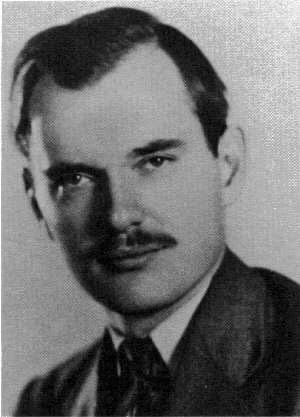
James Elliot Coyne, OM, The Queen’s College, 1931 Rhodes Scholar from Manitoba. He was awarded a Full Blue as captain of the OUIHC during the 1933-1934 season. He also won the Spengler Cup in 1932 and three consecutive Varsity Matches against Cambridge in 1932 (7-0), 1933 (1-0), and 1934 (4-2). He served in the Royal Canadian Air Force during the Second World War, and was Governor of the Bank of Canada from 1955 to 1961. His younger brother, John, would also play for the OUIHC and was responsible for its revival following the Second World War. His niece, Deborah Coyne, founded the Oxford women’s team (OUWIHC) in the 1980s.
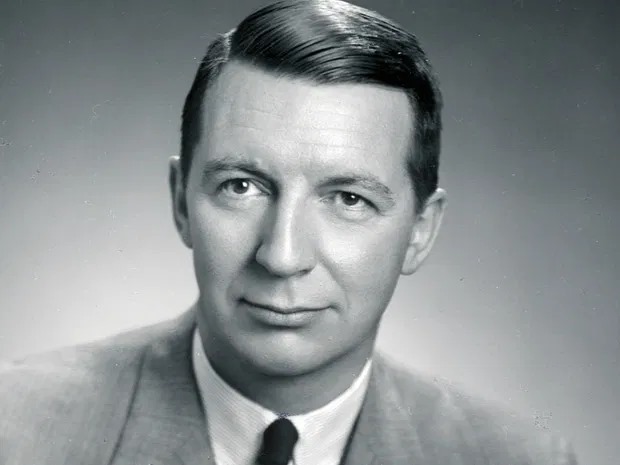
The Hon. Robert Aaron Gordon Robertson, PC, CC, FRSC, Exeter College, 1938 Rhodes Scholar from Saskatchewan. While competing with the OUIHC, Robertson defeated Cambridge in both the 1938 (1-0) and 1940 (4-2) Varsity Matches. Robertson served as the seventh commissioner of the Northwest Territories, a post he held from 1953 until 1963 when he was appointed clerk of the Queen’s Privy Council for Canada and secretary of the Cabinet on Prime Minister Pearson’s recommendation. In 1975, Prime Minister Pierre Trudeau appointed Robertson secretary to the Cabinet for Federal-Provincial Relations. From 1980 to 1990, he served as chancellor of Carleton University.
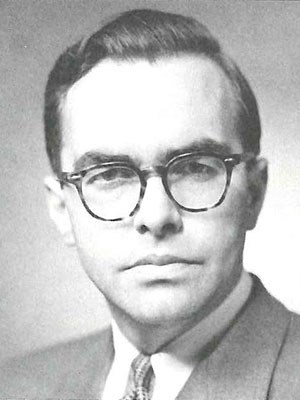
Dr William Howard Feindel, OC, GOQ, DPhil, MD, FRSC, Merton College, 1939 Rhodes Scholar from Nova Scotia. Feindel completed his doctorate in clinical medicine at the University of Oxford, focusing on neuroanatomy, and helped Oxford to victory over Cambridge in the 1940 Varsity Match (4-2). Dr Feindel later developed positron-emission tomography (PET) for medical imaging and became the director of the Montréal Neurological Institute in 1972. He was made an Officer of the Order of Canada in 1982 in recognition of his work in neurosurgery. From 1991 until his retirement in 1996, Feindel was the chancellor of Acadia University. He was inducted into the Canadian Medical Hall of Fame in 2003.
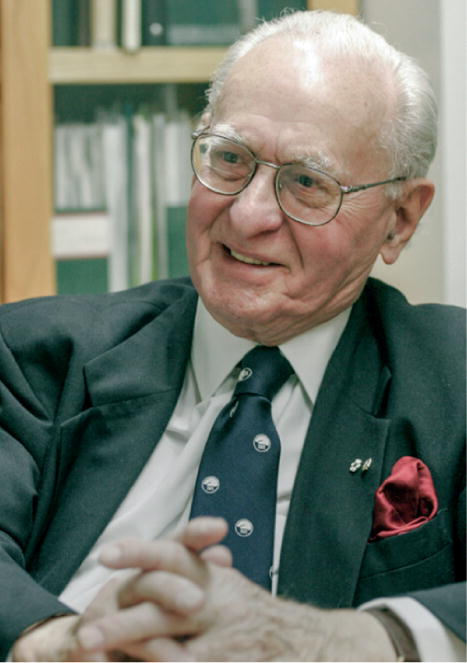
John McCreary “Jack” Coyne, DFC, CStJ, QC, The Queen’s College, 1940 Rhodes Scholar from Manitoba. Coyne deferred his scholarship to join the Royal Canadian Air Force in which he served for the majority of the Second World War. He was awarded the Distinguished Flying Cross in 1945. When Coyne came to Oxford in 1946, he, together with Gordon Blair, re-established the OUIHC. He was made a Commander of the Most Venerable Order of St John in 1978 and served as legal counsel for the Royal Canadian Geographical Society. Coyne was the younger brother of Bank of Canada Governor and OUIHC alumnus James Coyne. His daughter, Deborah (photo: right), came to Oxford in the 1980s and was the founder of Oxford women’s ice hockey. His daughter, Barbara, went to Cambridge and was a member of the Cambridge University Women’s Ice Hockey Club (CUWIHC).
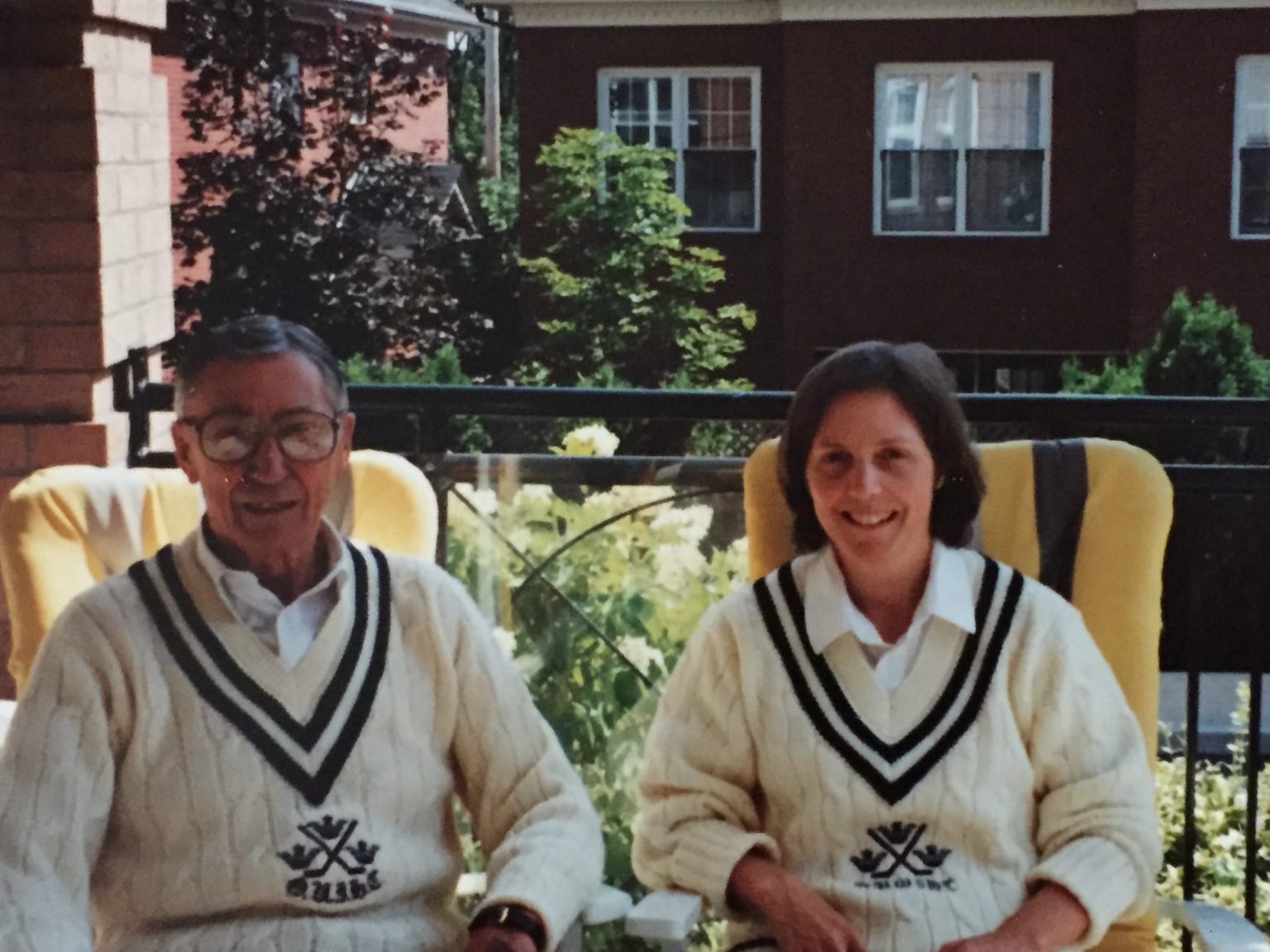
The Hon. Duncan Gordon Blair, CM, QC, Exeter College, 1941 Rhodes Scholar from Saskatchewan. Blair deferred his scholarship until after the Second World War. He enlisted in the Irish Regiment of Canada and was wounded in Italy. After arriving at the University in 1946, he and fellow Rhodes Scholar John Coyne revived the OUIHC, defeating Cambridge in the 1946 Varsity Match (15-4). He was elected to the Canadian House of Commons in 1968 for the Grenville-Carlton riding in Ontario and held that seat until 1972. He was appointed a justice of the Ontario Court of Appeal in 1978. He later served as president of the Royal Canadian Legion.

Dr Ramsay Gunton, CM, DPhil, MD, FRCPC, University College, 1946 Rhodes Scholar from Ontario. Gunton was part of the early post-war OUIHC and served as president of the club in 1947 and as team captain in 1948, capturing the Varsity Match win against Cambridge in both years. Dr Gunton was one of the first cardiologists to develop the cardiac catheterization technique in Canada. He served as the president of the Royal College of Physicians and Surgeons of Canada from 1986 to 1988. He headed the Toronto General Hospital’s Department of Therapeutics and was chair of the Department of Medicine at the University of Western Ontario. The Western Ontario research chair in cardiology is named in his honour.
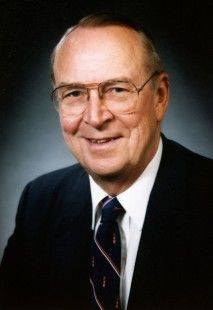
The Hon. Allan Emrys Blakeney, PC, OC, SOM, QC, FRSC, The Queen’s College, 1947 Rhodes Scholar from Nova Scotia. After completing a law degree at Dalhousie University in Halifax, Blakeney arrived in Oxford to study politics, philosophy and economics (PPE). As a member of the OUIHC he saw consecutive Varsity Match wins over Cambridge in 1948 (5-2) and 1949 (4-3), before returning to Canada where he was called to the bar in Saskatchewan in 1951. In 1960, he was elected to the provincial legislature as a member of the Co-operative Commonwealth Federation (now the New Democratic Party, or NDP), where he served terms as Saskatchewan’s minister of health, education, and finance, under the governments of Tommy Douglas and Woodrow S. Lloyd. When Premier Lloyd expanded universal health insurance coverage to include medical care provided by doctors in 1962, 90% of doctors went on strike. As health minister at the time, Blakeney successfully negotiated with physicians to keep the new system, which was extended to all Canadians by 1966. He was thus instrumental in the creation of North America’s first publicly funded universal health care system (Medicare). As leader of the provincial NDP, Blakeney later served as Premier of Saskatchewan (1971-1982), and played a key role in the patriation of the Canadian Constitution in 1982.
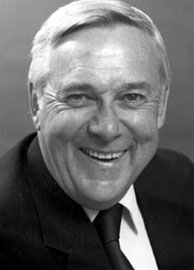
Nicholas deBelleville Katzenbach, Balliol College, 1947 Rhodes Scholar from New Jersey. As a navigator in the United States Army Air Corps in World War II, his B-25 Mitchell Bomber was shot down over the Mediterranean Sea and he spent two years in Italian and German prisoner of war camps, including Stalag Luft III, the site of the “Great Escape”, which he assisted in. After finishing at Princeton and Yale Law School, he came to Oxford from 1947-1949, where he helped the OUIHC to Varsity Match victory (4-3) over Cambridge in 1949. He later served as the US Attorney General (1965-1966) and U.S. Under-Secretary of State (1966-1969), and played a crucial role in the drafting and passage of the 1964 Civil Rights Act.
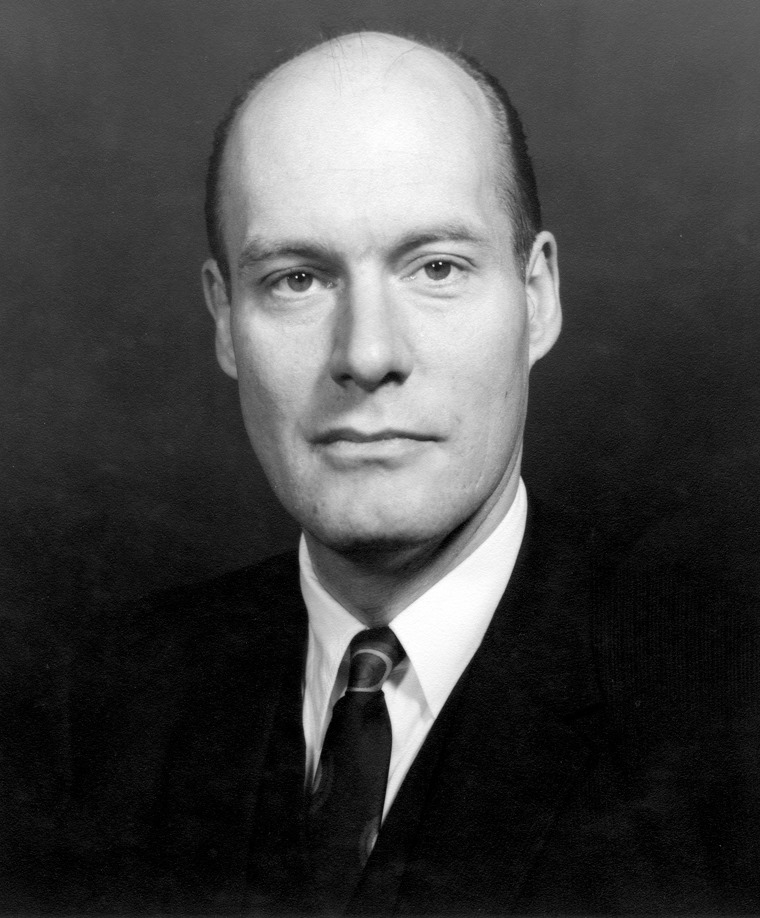
Harry Chester Butterfield, University College, 1949 Rhodes Scholar from the Colony of Bermuda. One of three Bermudians to ice for OUIHC during the 20th century. He was the son of Sir Harry Durham Butterfield, and like his father attended McGill University where, unlike his father, he fell in love with ice hockey. He was a member of the Bermuda Race Relations Advisory Council from 1966-1976. The Council initially encouraged the passage of the Race Relations Act which was finally enacted in 1969 and prohibited racial discrimination in employment, housing, and services. Following the enactment of the 1969 Race Relations Act, the Council was in charge of investigating allegations of discrimination. Butterfield also served as the President of the Bermuda Bar Association from 1985 until his death in 1987.

H. Ian Macdonald, OC, KLJ, Balliol College, 1952 Rhodes Scholar from Ontario. With his record of 135 goals between 1952-1955, Macdonald remains the leading scorer of the OUIHC. Notably, Macdonald holds the record for most goals scored against Cambridge in a Varsity Match with 9 (29-0 in 1955). He served as the President of York University (1974-1984) and Chairman of Hockey Canada (1987-1994), responsible for Canada’s Olympic and World Championship hockey programme. From 1994-2003, he was chair of the Board of Governors of the Commonwealth of Learning, an organisation dedicated to improving the quality and access of education within the Commonwealth of Nations. As an esteemed alumnus of the OUIHC, Macdonald was the ceremonial puck dropper at the 100th Men’s Blues Varsity Match in 2018 which was held at the outdoor site of the original 1885 match in St Moritz, Switzerland. Despite not playing in the alumni match in St Moritz, Macdonald continues to lace up the skates and light up goalies at his local rink in Toronto.
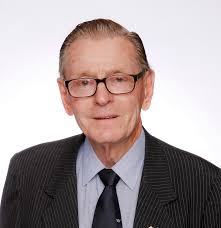
The Hon. Otto Lang, PC, OC, QC, Exeter College, 1953 Rhodes Scholar from Saskatchewan. While playing for the OUIHC alongside H. Ian Macdonald, Lang saw victory over Cambridge in both the 1953 and 1954 Varsity Matches. He later served as a Member of Parliament for the riding of Saskatoon (1968-1979) and twice served as the Minister of Justice and Attorney General of Canada under Prime Minister Pierre Trudeau, first from 1972 to 1975, and again in 1978.
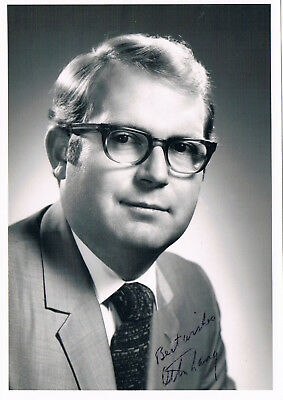
Brigadier General Peter Miller Dawkins, PhD, Brasenose College, 1959 Rhodes Scholar from Michigan. An American business executive and former college football player, Dawkins was the 1958 Heisman Trophy winner before lacing up with the OUIHC. At 6’3″, 210 pounds, he won three Blues in rugby union, despite never having played rugby before. Dawkins also had the opportunity to play against the South African Springboks and New Zealand’s All Blacks. As Assistant Captain with the OUIHC, he fractured his jaw in the 1960 Varsity Match against Cambridge, yet still finished the game as one of the more dominant players. He returned the following year to lead Oxford to victory (7-5). After Oxford, he went on to serve as an officer in the United States Army and received two Bronze Stars for Valour in Vietnam and rose to the rank of Brigadier General. He completed a PhD at Princeton University in 1977 and retired from the Army in 1983; he has since held senior executive positions in finance and management consulting.
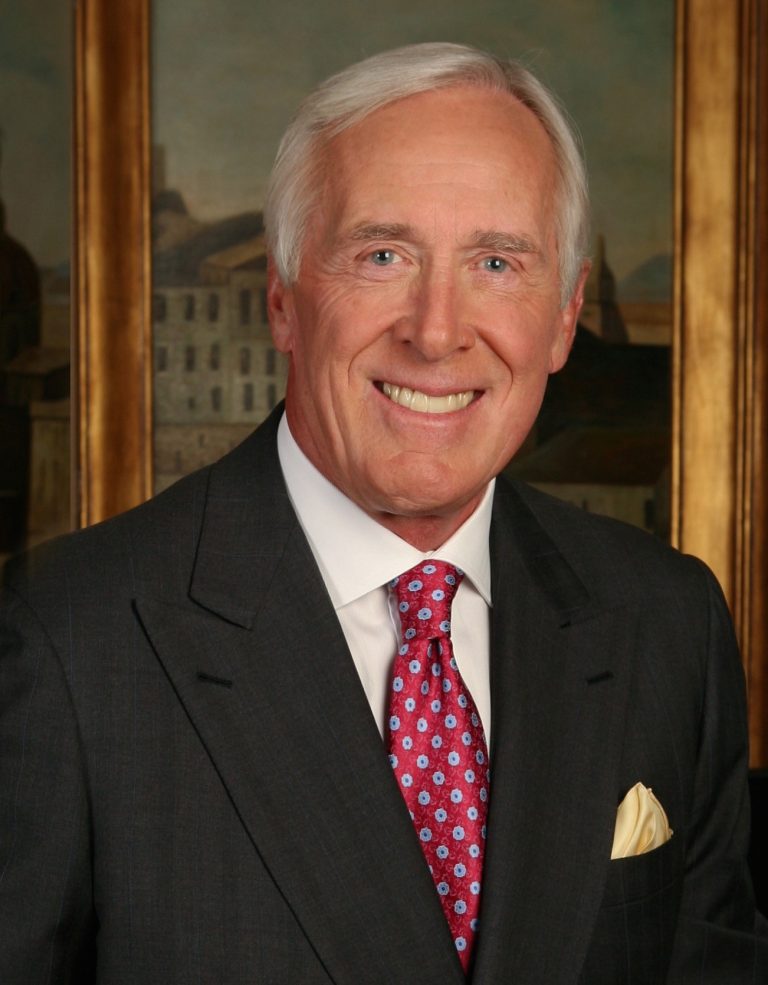
Dr Andrew Michael Spence, PhD, Magdalen College, 1966 Rhodes Scholar from Ontario. After four years of playing hockey for Princeton University, Spence helped carry the Blues to a 18-2 Varsity Match win over Cambridge in 1967. Following a PhD in economics at Harvard, he received the John Bates Clark Medal in 1981, and was a co-recipient of the Nobel Prize in Economics in 2001, alongside George A. Akerlof and Joseph E. Stiglitz, “for their analyses of markets with asymmetric information”.
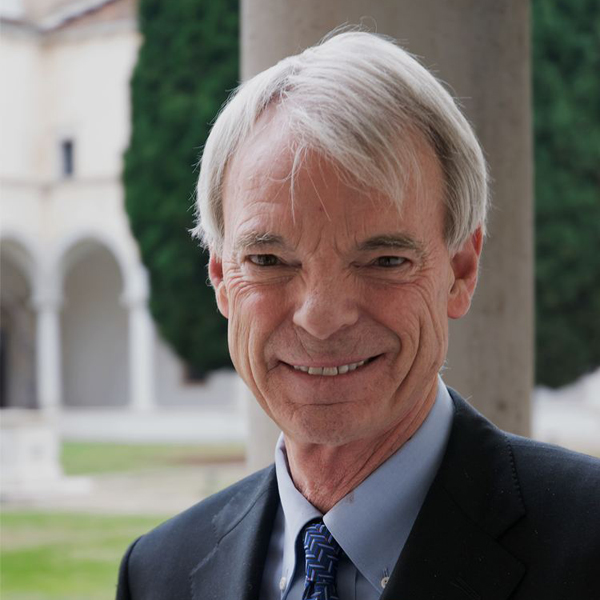
Daniel (“Danny”) E. Williams, QC, Keble College, 1969 Rhodes Scholar from Newfoundland. While playing for the OUIHC, Williams captured the Varsity Match with wins over Cambridge in 1970 (6-1) and 1971 (13-5). A skilled lawyer and entrepreneur, Williams was appointed Queen’s Counsel in 1984 and later built one of the largest communications companies in Atlantic Canada. After entering provincial politics, he led the Progressive Conservatives to a majority government and served as Premier of Newfoundland and Labrador from 2003-2010. By the end of his premiership, Williams’ provincial approval ratings were among the highest in Canadian political history. Since 2013, Williams has operated DEWCOR, a company he founded to undertake business ventures that aim to foster long-term prosperity and economic activity in Newfoundland and Labrador.
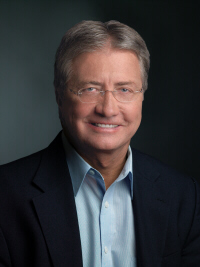
Dr Andrew Rowan, DPhil, FRSM, Oriel College, 1968 Rhodes Scholar from South Africa. While completing his doctorate (DPhil) in biochemistry, Rowan played goaltender for the OUIHC, beating Cambridge in 7 consecutive Varsity Matches between 1969-1975. Despite being a rookie goaltender for Oxford, Rowan had previously trained with the Mahtomedi High School team in Minnesota (1964-1965) under the guidance of their goalie coach, who later trained the renowned 1980 ‘Miracle on Ice’ USA National Team at Lake Placid. After Oxford, Rowan established the Centre for Animals and Public Policy at the Tufts University Cummings School of Veterinary Medicine in Massachusetts. He has since served as Chief Executive Officer of Humane Society International (1998-2018), and Chief Scientific Officer of The Humane Society of the United States, overseeing global projects on animal care, welfare, and advocacy. Since 2018, Rowan has served as President of Wellbeing International, an NGO that focusses on projects that deliver solutions for humans, animals, and the environment.
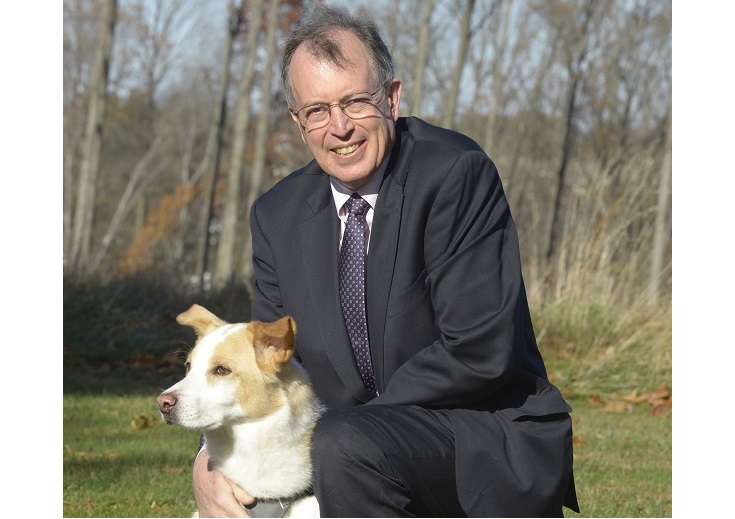
John H. McCall MacBain, OC, Wadham College, 1980 Rhodes Scholar from Québec. MacBain played as a forward for the OUIHC and was co-captain with Gary Lawrence in the 1981-1982 season, which ended with a Varsity Match victory over Cambridge (7-5), in which he scored the final goal. He is noted for his philanthropy, especially the work of the McCall MacBain Foundation which he founded in 2006. MacBain has been dubbed the “Second Century Founder of the Rhodes Scholarship” for his £75 million donation to the Rhodes Trust. As an alumnus, he has generously supported the OUIHC including financial donations and hosting OUIHC teams at his residence in Courchevel, France. Most recently the Oxford and Cambridge Women’s Blues teams played their annual Varsity Match in Courchevel in 2019.

Deborah Coyne, Wadham College, 1980 Commonwealth Scholar. In early 1981, Deborah Coyne founded the Oxford University Women’s Ice Hockey Club (called the OUIHC since 2005, encompassing both Oxfords men’s and women’s teams) and was its first captain. Deborah Coyne is the daughter of John Coyne, who re-established the OUIHC after the Second World War. Her uncle, James Coyne, also played for Oxford in the 1930s and later became the second governor of the Bank of Canada. Deborah Coyne contacted several women’s clubs and organized the first British women’s ice hockey league. Coyne also persuaded Cambridge to form a women’s ice hockey club of their own so that a women’s Varsity Match fixture could be established. That first match was played in 1982. Deborah’s younger sister, Barbara Coyne, attended the University of Cambridge, and was the goaltender for the CUWIHC in the 1985-1986 season. Coyne was a prominent figure in the Liberal Party and took a leading role in the opposition to the Meech Lake Accords. From 1989 to 1991 she served as an advisor to Newfoundland Premier Clyde Wells. In 2015, Coyne became the senior policy adviser to Green Party leader Elizabeth May. In 2019, Coyne helped organise the Varsity Tour to Courchevel, France which included an alumni match and the annual Women’s Blues Varsity Match between Oxford and Cambridge — a celebration of women’s ice hockey.
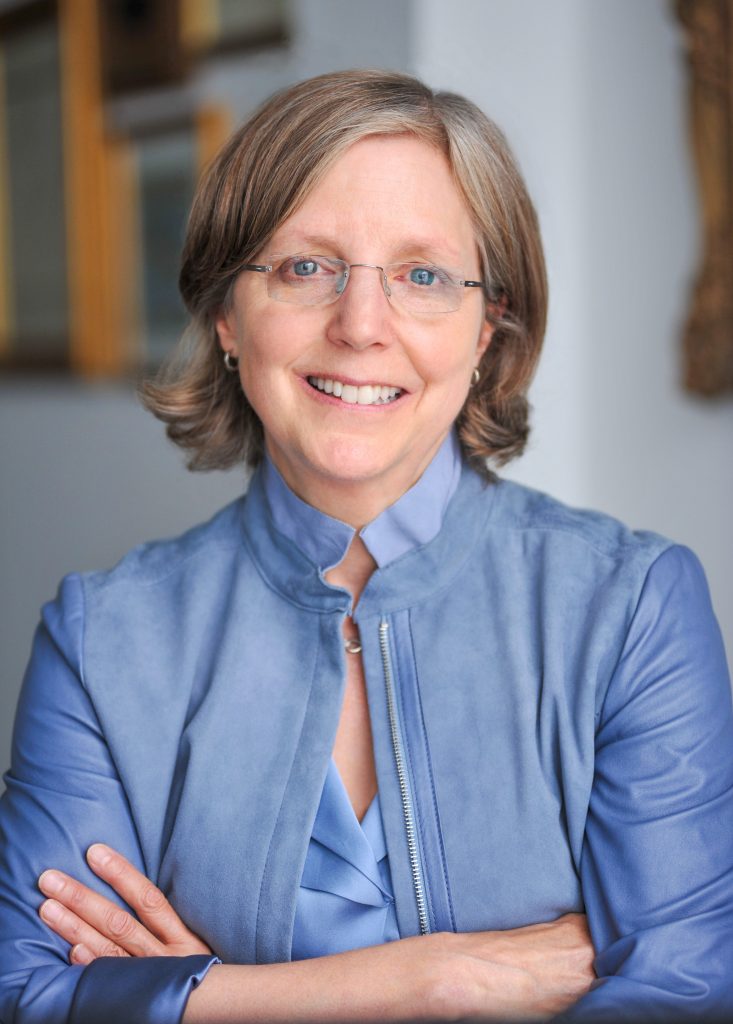
Patrick Pichette, CQ, Pembroke College, 1987 Rhodes Scholar from Québec. While playing hockey at Oxford, Pichette helped dispatch Cambridge in back-to-back Varsity Match wins in 1988 (11-3) and 1989 (15-4). After graduating, he became a prominent Canadian businessman. He served as Senior Vice President and Chief Financial Officer at Google Inc. from 2008-2015. In 2015, he was made a chevalier of l’Ordre national du Québec. He is now a director and board member for Twitter Inc. and the Trudeau Foundation and is a general partner at the venture capital fund Inovia Capital. In 2016, another member of the Pichette family joined OUIHC: his daughter, Mireille Pichette played for the Oxford Women’s Blues.
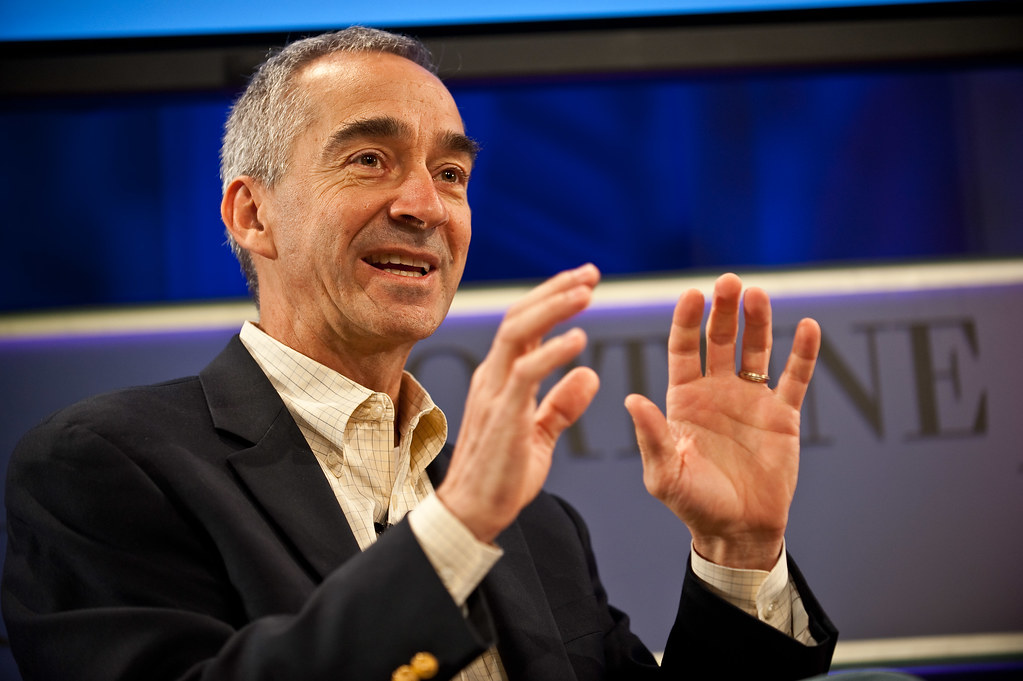
The Hon. David Lametti, PC, QC, DPhil, Exeter College. Lametti co-captained the OUIHC in the late 1980s with Mark Carney. From 1989 to 1990, Lametti was clerk to Justice Peter Cory of the Supreme Court of Canada. He was a law professor at McGill University and served as director of the McGill Institute of Comparative Law from 2002 to 2006. He is a founding member of the Centre for Intellectual Property Policy (CIPP) and served as its director from 2009 to 2012. He was elected to the House of Commons in 2015 for the Lasalle-Émard-Verdun riding in Québec, and in January 2019 was made a Queen’s Counsel and appointed Minister of Justice and Attorney General of Canada by Prime Minister Justin Trudeau followed by appointment to the Queen’s Privy Council for Canada in April of that year.
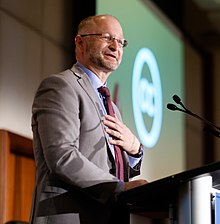
Dr Mark Carney, OC, DPhil, St Peter’s College and Nuffield College 1992-1994. Carney completed his bachelor’s in economics at Harvard University before coming to Oxford where he received a master of philosophy (MPhil) and doctorate (DPhil) in economics. Carney was goalkeeper and co-captain with David Lametti, together leading Oxford to dominant Varsity Match victories over Cambridge in 1993 (19-0) and 1994 (13-3). Carney later served as the Governor of the Bank of Canada (2008-2013) and Governor of the Bank of England (2013-2020). Carney is a member of the international advisory board of Oxford University’s Blavatnik School of Government. Carney married Oxford women’s ice hockey alumna Diana Fox, whom he met through hockey.
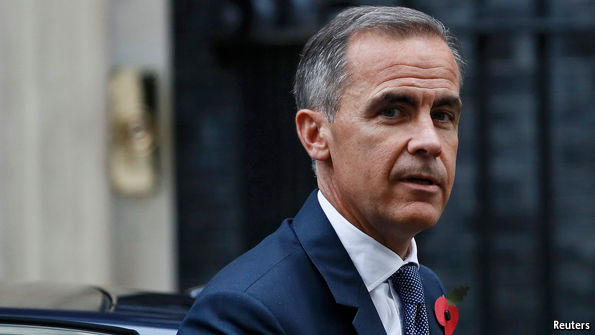
Dr Shona Brown, PhD, New College, 1987 Rhodes Scholar from Ontario. After completing her PhD and postdoctoral work at Stanford University, Dr Brown was a Partner at McKinsey & Company and Senior Vice President of business operations at Google Inc (2003-2011). She led Google’s technology for social impact efforts until 2013 and is the author of Competing on the Edge: Strategy as Structured Chaos, which introduced a novel strategic model for competing in volatile markets. Dr Brown is now a board member/advisor to a portfolio of private technology start-ups and non-profit organisations including The Nature Conservancy, The Centre for Advanced Study in Behavioural Sciences (CASBS), The Knight Foundation, and Code for America.

Diana Carney (née Fox), St John’s College. As a member of the OUWIHC, Diana Fox was known for her ability to skate rings around her opponents and move effortlessly through the opposing defensive line. Following her marriage to Mark Carney, an alumnus of the OUIHC, she moved to Canada where she served as the vice president of Canada 2020, a think-tank focused on the issues of climate and energy as well as social mobility and inequality. As part of Canada 2020, Carney coordinated the federal government strategy project, The Canada We Want in 2020. Since 2013, she has been the director of Strategy and Engagement at the Institute for Public Policy Research (IPPR) in London. She has also served as a Trustee of the Friends of the Royal Academy and a World Wildlife Foundation Ambassador.
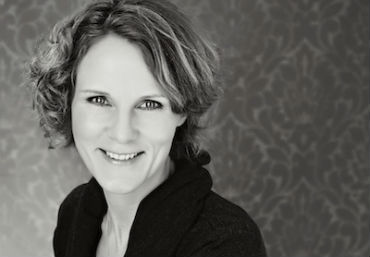
Joy Johnston (née Tottman), New College 2001-2004. Having refereed from a young age, Johnston was already a standout player when she joined the Oxford Women’s Blues in 2002. During her tenure on the team, she beat Cambridge in the 2002 and 2003 Varsity Matches. For her outstanding play and her refereeing pedigree, she was awarded an Extraordinary Full Blue (EFB). This special Full Blue is a ‘one-off’ award that is voted on by all the Blues Captains of Oxford University sport (the Blues Committee) and bestowed only to those who have achieved remarkable success in their sport. Johnston remains the only Women’s Blues player to receive an Extraordinary Full Blue (the only other OUIHC member to receive the EFB was Alan Keeso in 2015). Johnston has held a referee license with the International Ice Hockey Federation (IIHF) from 2000 to 2015 and during that time has established herself as an accomplished international ice hockey referee. She has officiated at over 16 international tournaments, including 3 Olympics (Torino 2006, Vancouver 2010, and Sochi 2014) where she was given the honour of refereeing the Bronze Medal Game in Torino 2006 and the gold medal game between Canada and the United States in Sochi in 2014. After serving as Director of Officiating and Chief Referee for the UAE Ice Sports Federation between 2014 and 2016, Johnston is now the Director of the Officiating Education Programme at Ice Hockey UK, an Officiating Coach and Instructor for the International Ice Hockey Federation (IIHF), and a Board Director for the English Ice Hockey Association.
